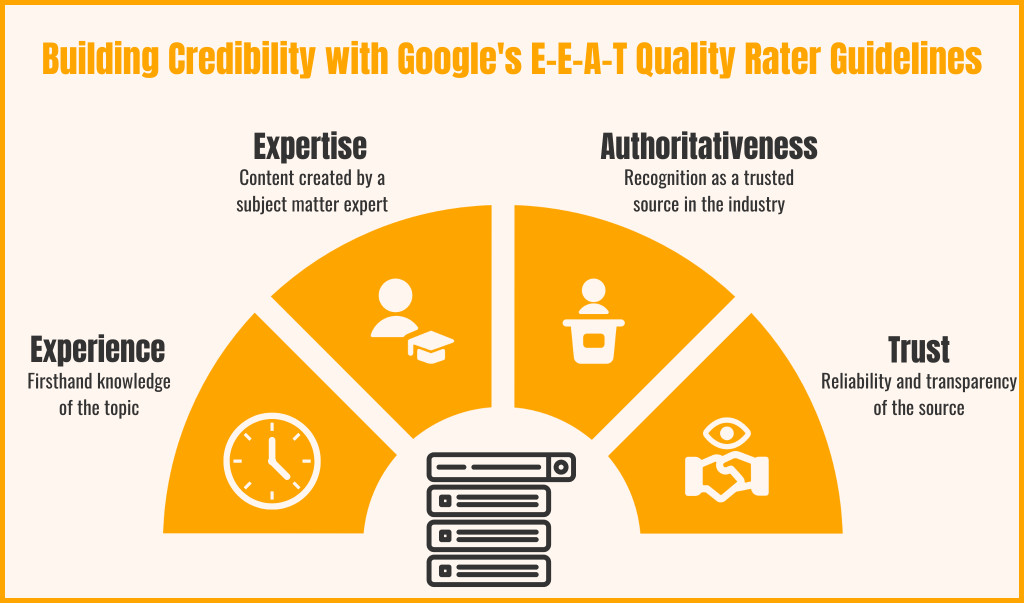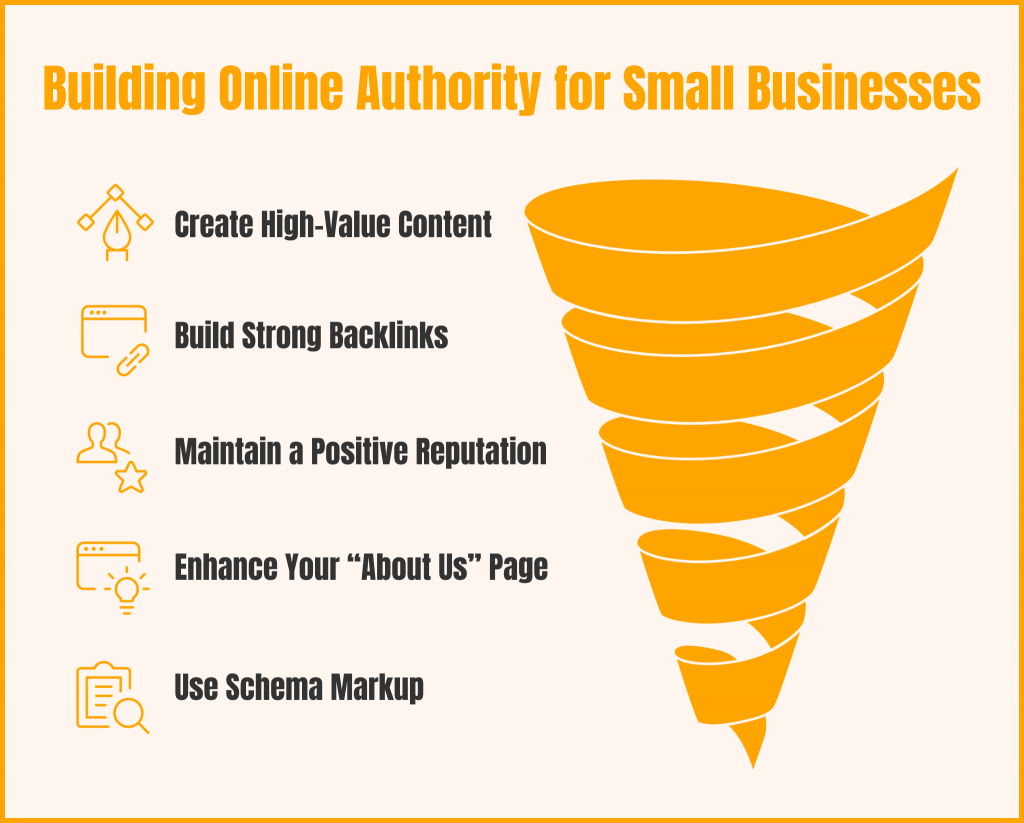
Overview
Authoritativeness has been a key part of how Google rates websites for many years but is becoming even more important as search engine algorithms evolve. This blog examines the importance of expert opinions and how small business owners can use their authority to their advantage.
Highlights
- •Introduction
- •Why Google Has Started To Focus on Authoritativeness
- •The Shift Toward Q&A Formatting and Expert Contributions
- •How Small Business Owners Can Build Their Online Authority
- •Need Help Establishing Your Online Authority? LinkNow Can Help!
Introduction
Google’s search algorithms are constantly evolving, but one factor has become increasingly important: authoritativeness. As misinformation and generic content flood the internet, Google is refining its ranking systems to prioritize high-authority content. This shift means businesses that demonstrate real-world knowledge and industry authority have a greater opportunity to rank higher in search results and attract more qualified leads.
For small business owners, this means simply publishing content isn’t enough—Google favors those who establish themselves as industry leaders through expert-driven insights, structured content, and strong online reputations.
In this post, we’ll explore why Google is prioritizing authoritativeness, how E-E-A-T influences rankings, and what businesses can do to build credibility and stand out in search results.
Why Google Has Started To Focus on Authoritativeness
The Role of User Trust and Search Intent
At its core, Google’s priority is to serve content that matches what users are actually looking for—and that means prioritizing trustworthy, expert-backed answers.
Consider this: when someone searches for legal advice, medical guidance, or even recommendations on home improvement, they want to hear from professionals—not from random sources using incorrect or recycled information. Google understands this and continues to refine its algorithms to surface content that demonstrates depth, credibility, and expertise.
For small business owners, this shift presents a huge opportunity. By sharing authentic expertise and highlighting why they should be trusted on a particular subject, businesses can build digital authority, stand out in search results, and attract more qualified leads.
E-E-A-T: Google’s Framework for Evaluating Content Credibility
Google’s commitment to surfacing reliable information is guided by its E-E-A-T framework:
- •Experience: Does the author have firsthand knowledge of the topic?
- •Expertise: Is the content created by a subject matter expert?
- •Authoritativeness: Is the author or website recognized as a trusted source in the industry?
- •Trustworthiness: Does the content come from a reliable, transparent source?
E-E-A-T plays a major role in ranking decisions, especially in industries where misinformation could have real-world consequences—such as health, finance, and legal services. However, it’s not just for regulated industries. Google is applying these principles across all search results, favoring businesses that demonstrate clear expertise and industry knowledge.

While we’re primarily focusing on authoritativeness in this blog post, most of these concepts go hand-in-hand with establishing your business as a leader in your field and ensuring you rank highly on Google.
The Impact of AI-Generated Content on Search Rankings
The rapid advancement of AI-generated content has flooded the internet with articles, blogs, and responses that often lack depth and originality. While these tools can produce content quickly, much of it is based on existing material rather than genuine expertise. This has led to an increase in repetitive, generic information that doesn’t offer the unique insights Google prioritizes.
In response, Google has fine-tuned its algorithms to distinguish between content that demonstrates real-world experience and content that simply repackages what’s already available. Google’s evolving ranking criteria favor expert-driven content that provides actionable, experience-based knowledge rather than surface-level summaries.
For small business owners, this shift presents both a challenge and an opportunity. While AI can serve as a tool to streamline content creation, it should not replace authentic, expert-driven input. By focusing on firsthand experience, case studies, and industry insights, businesses can set themselves apart from mass-produced AI content and build a stronger online presence.
The Shift Toward Q&A Formatting and Expert Contributions
How Google Is Prioritizing Q&A Content
Google’s search engine updates are increasingly favoring content that provides direct, concise, and expert-driven answers. This is evident in the growing prominence of featured snippets, ‘People Also Ask’ (PAA) sections, and Google’s AI-powered Search Generative Experience. These elements highlight well-structured Q&A content at the top of search results, giving users quick and authoritative answers without requiring them to click through multiple pages.
For small business owners, this means that structuring content in a Q&A format can significantly increase visibility. By providing well-organized answers to industry-specific questions, businesses can increase their chances of appearing in these high-visibility search features.
Why Q&A Content Signals Authority
Google’s emphasis on Q&A content is rooted in its goal of delivering authoritative information to users. When a business provides clear, well-researched answers, it demonstrates expertise and builds trust with both search engines and potential customers.
Expert-driven Q&A content is particularly valuable because it reflects real-world experience and professional knowledge. Google rewards content that showcases depth, accuracy, and credibility, especially in industries where expertise is critical. A well-structured Q&A format allows businesses to highlight their knowledge while making it easier for search engines to understand and rank their content.
Additionally, users tend to engage more with content that directly answers their questions. When a website consistently provides useful, authoritative answers, it encourages longer session times, higher engagement rates, and more returning visitors—all factors that contribute to stronger SEO performance.
How Small Business Owners Can Build Their Online Authority
1. Create High-Value Content and Leverage Firsthand Knowledge
The most authoritative businesses online are the ones that offer unique insights and real expertise in their field. Blog posts, case studies, and detailed FAQ pages that share industry knowledge and personal expertise all help establish your credibility. Rather than relying on generic information, draw from your own experiences, discuss real-world challenges, and provide solutions that customers won’t find elsewhere.
An effective way to demonstrate your expertise is by answering common customer questions in-depth. Explaining industry processes, breaking down complex topics into easy-to-understand terms, and offering professional advice all contribute to building trust with both potential customers and search engines.
2. Build Strong Backlinks From Other Authoritative Websites
Your website’s credibility is not only determined by its own content but also by the company it keeps online. When high-authority websites link to your business’s content, it signals to Google that your site is a trusted source. Earning backlinks from reputable industry sites, news outlets, or professional organizations enhances your authority and improves search engine rankings.
One way to attract high-quality backlinks is by contributing your expert insights to relevant publications. Guest blogging, participating in industry interviews, or providing quotes for news articles increases your visibility while earning valuable links. Additionally, creating original research or comprehensive industry guides makes other websites more likely to reference and link back to your business’s content.

3. Maintain a Positive Reputation Both Online and Offline
A strong online reputation is a key component of digital authority. Reviews on platforms like Google, Yelp, and industry-specific directories influence both potential customers and search engine rankings. Google prioritizes businesses with high ratings and consistent positive feedback, as they indicate trustworthiness and reliability. Responding to reviews—both positive and negative—demonstrates engagement and a commitment to customer satisfaction, further reinforcing credibility.
Beyond reviews, public recognition and community involvement contribute to your company’s authority. Sponsoring local events, participating in charitable initiatives, or being featured in industry awards showcases your business’s role as a respected leader in your field. Search engines take these external signals into account, making community engagement an indirect but powerful factor in online visibility.
4. Create a Robust “About Us” Page for Your Website
A well-crafted “About Us” page serves as a credibility booster for your customers and search engines. This page should clearly outline your business’s expertise, history, and key team members, providing visitors with insight into why your company is a trusted authority. Featuring detailed bios that highlight experience, certifications, and accomplishments helps establish trust, while including media mentions, awards, and professional affiliations further reinforces credibility.
Transparency also plays a major role in building trust. Showcasing real stories, sharing your company’s mission, and including high-quality images of the team or workplace creates a sense of authenticity. When your business provides a clear and engaging narrative about who you are and why you’re an expert in your field, you have a stronger chance of standing out in the search results.
5. Structure Your Content Appropriately and Take Advantage of Schema Markup
The way content is structured affects how well search engines understand and rank it. Google rewards well-organized content that is easy to navigate, so using clear headings, subheadings, and logical formatting improves readability. Breaking down information into digestible sections helps users find the answers they need quickly, which in turn signals to Google that your content is valuable.
Beyond formatting, schema markup is a powerful tool for boosting online authority. Schema markup helps search engines interpret your content more effectively, leading to enhanced search results with rich snippets. Adding FAQ schema, article schema, or review schema makes your content more likely to appear in Google’s featured snippets and ‘People Also Ask’ sections.
Need Help Establishing Your Online Authority? LinkNow Can Help!
Google’s increasing focus on expert opinions and authoritative content means small businesses can no longer rely on generic, unstructured material to rank well in search results. As search algorithms continue evolving, those who invest in their authority today will gain a competitive edge in the long run.
For small business owners, navigating these SEO strategies while running a company can be overwhelming. That’s where we come in. LinkNow specializes in helping small businesses establish their online authority through expertly crafted content, strategic SEO practices, and reputation management.
Whether it’s optimizing your website, building high-value backlinks, or creating content that highlights your expertise, we have the tools and experience to position you as a trusted leader in your industry. Click here to get in touch with our team and start establishing your online authority today!


What are some effective ways to get high-authority websites to link back to my business if I don’t have connections in my industry?